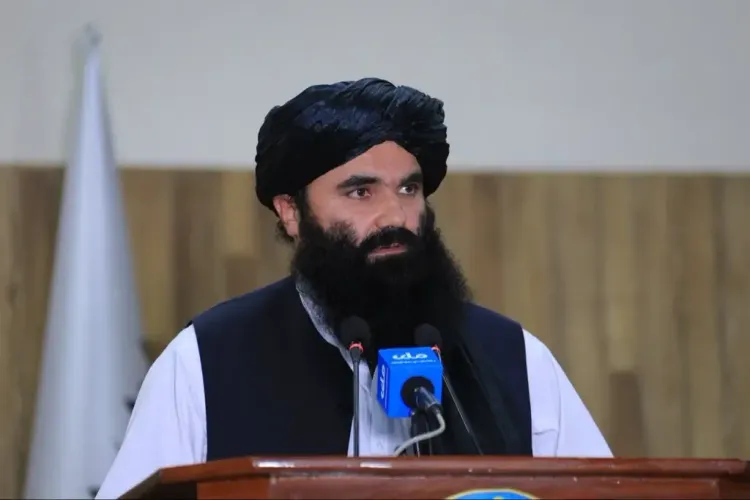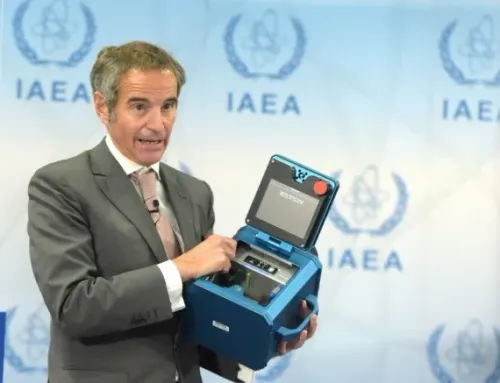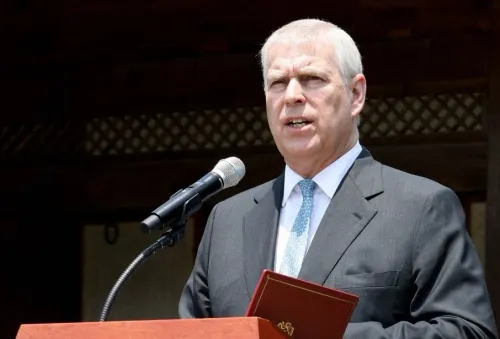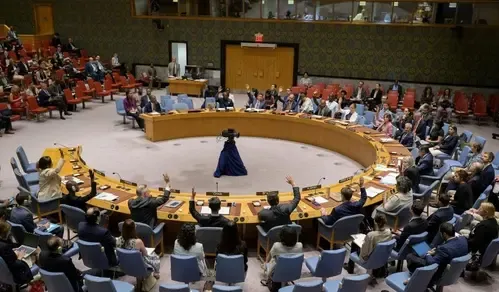Is Pakistan's Aggression Against Afghanistan a Big Mistake?

Synopsis
Key Takeaways
- Haqqani emphasizes the unity of the Afghan people against external aggression.
- The Afghan government prioritizes territorial defense.
- Pakistan's internal issues regarding TTP are highlighted as a domestic concern.
- Negotiations between Afghanistan and Pakistan have been marked by mistrust.
- Potential consequences of aggression from Pakistan are severe.
New Delhi, Oct 30 (NationPress) Amid escalating tensions between Afghanistan and Pakistan, Acting Interior Minister Sirajuddin Haqqani issued a strong warning in Kabul on Thursday, asserting that Kabul will not overlook any acts of aggression from Islamabad.
“Despite having internal challenges, the Afghan people are united against any external aggressor. Defending our territory is our utmost priority,” Haqqani stated, following a recent round of inconclusive talks in Istanbul earlier this week.
This warning comes shortly after Pakistan's Defence Minister Khawaja Asif reportedly cautioned the Afghan Taliban, emphasizing that they risk testing Islamabad's resolve at their own peril. Asif claimed that Pakistan could decisively eliminate the Taliban without needing to utilize even a fraction of its military capabilities.
Regarding future negotiations, Haqqani remarked, “Our doors for dialogue remain open. We do not seek conflict with anyone. However, those who act aggressively should recognize that we have resisted world powers before, and defending our territory is not a challenge for us.”
Pakistan has maintained that action against the Tehreek-e-Taliban (TTP) and preventing its fighters from using Afghanistan as a sanctuary are essential for any future agreements.
Yet, Haqqani asserted on Thursday that this matter is Pakistan's internal issue.
“We have repeatedly addressed this with Pakistan, urging them to resolve their domestic issues,” he mentioned.
“Should you attempt to export this problem into Afghanistan, you risk inciting unrest here. Such a mistake will ultimately be yours and will have severe repercussions,” Haqqani cautioned.
“Though we may lack advanced weaponry, our determination is unwavering. We can navigate any challenges and emerge victorious,” he emphasized.
The senior Taliban leader made it clear that any act of aggression that jeopardizes Afghanistan would be a “grave error.”
Earlier this week, Afghanistan issued a stern ultimatum to Pakistan, pledging a robust response to any future military actions following the breakdown of negotiations after Pakistan's withdrawal.
According to sources, Afghan media outlet Ariana News reported that Pakistan had retracted from the talks after presenting demands deemed “unreasonable and unacceptable” by the Afghan delegation, including requests for Kabul to rein in armed individuals allegedly acting against Pakistan—a demand the Afghan side rejected. Furthermore, Afghan forces are prepared to retaliate should Pakistan conduct airstrikes on Afghan territory.
Reports indicated that the Istanbul discussions highlighted significant mistrust, disunity, and conflicting agendas, especially regarding US drone operations and cross-border terrorism.
The immediate cause for the negotiation breakdown appears to be Pakistan's unprecedented admission of an agreement with the United States allowing drone operations from its territory. Pakistani officials insisted this agreement is non-negotiable, provoking outrage from the Afghan negotiators, who demanded assurances that Pakistan would not permit US drones to violate Afghan airspace,” Indian news network NDTV reported.









